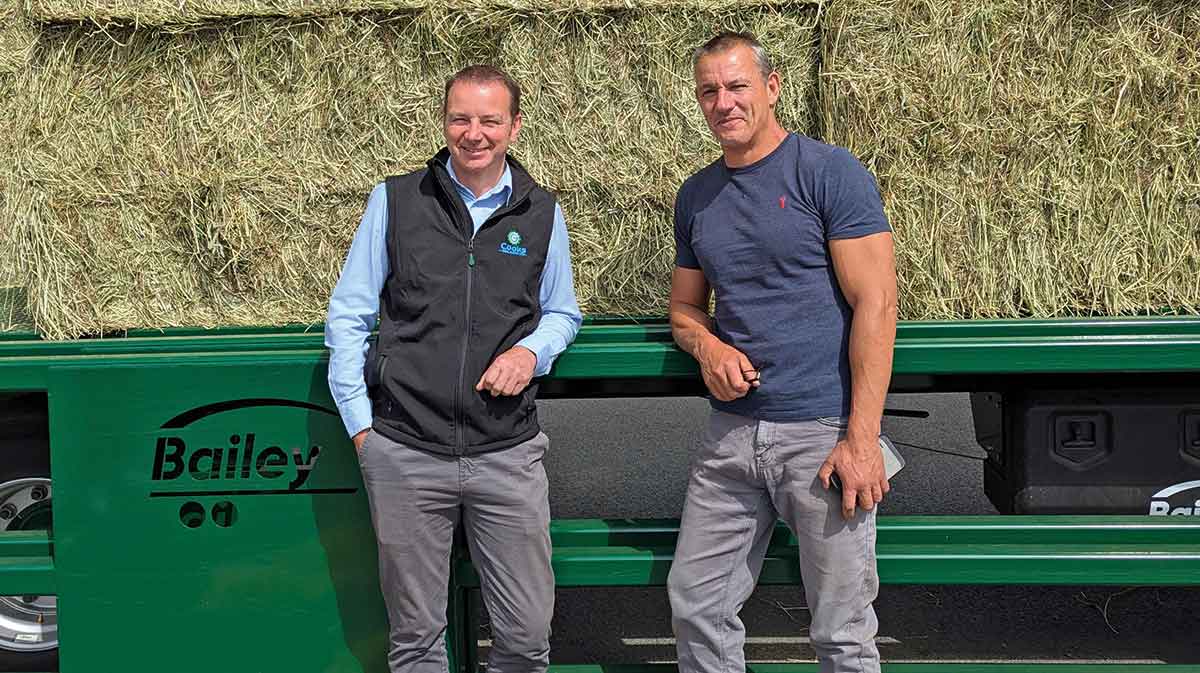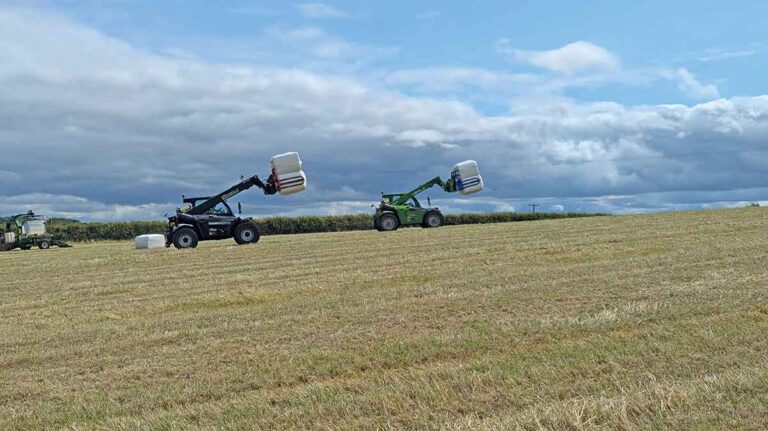Richard Brookes started transitioning his family’s arable farm to a grassland system 25 years ago.
Having always been “horse-oriented”, the family ran a livery yard on the farm alongside the arable business.
Richard and his father, Geoff, began introducing grass leys into the rotation and in the first year produced 400t of haylage and hay.
This was primarily processed into 20kg bags for local country stores.
“It was apparent very early on that this would offer something that mainstream farming would not,” Richard says. “The profit margins were higher, and I found it more interesting.”
See also: Scottish estate puts Grange toolbar to work
Production boost
After that first year, they increased production significantly, investing in a New Holland D1000 square baler and Tanco wrapper.
Within a few years, the business was employing 18 members of staff and running five balers and 10 wrappers to produce more than 7,000t of hay and haylage.
This required good, reliable loading kit and Richard went to local dealer Cooks Midlands to arrange a demonstration of a Merlo telehandler.
“From the start, we were impressed with the hydrostatic transmission,” he explains.
“There’s no lurching when we shift from forward to reverse, which protects the bales and the wrap, and speeds up collection from the field.”

Always moving
The need for loading equipment has only become more vital as the business has expanded. Concerns over weather windows and difficulty sourcing staff meant Richard looked at new investments.
The D710 balers were swapped out for New Holland 80×90 and 120×90 large square balers, capable of clearing ground quickly – the company cuts some 650ha during the first cut. These are followed by four McHale 998 wrappers.
In the yard, further investment saw a reprocessing unit built on the site which breaks the 120×90 bales into 10 conventional bales. These are palletised and delivered to stables.
“The smaller bales are easier to portion out in the stables and have been popular with our customers,” Richard adds.
Better efficiency
The company has further improved efficiency by investing in a hay-drying system, enabling crops to be baled at 75% dry matter and then bringing it up to 85% in the yard.
According to Richard, drying hay like this, instead of doing multiple passes with a tedder, not only avoids issues with the weather, but also ensures that the crop retains its colour and makes it more appealing to customers.
The yard operations, which are done in addition to the general collection, stacking and loading lorries, mean Richard requires multiple loaders.
Sourced from Cooks, the company now runs four Merlo Turbofarmer handlers; a TF35.7CS that can lift 3,500kg and has a maximum lift height of 7m, a TF42.7CS, lifting 4,200kg to 7m, and two TF38.10CSs, including one in a special black livery for capacities of 3,800kg and heights of 10m.
“The real standout for us is the cab suspension,” Richard says. “Keeping staff is always difficult, so it’s vital to ensure they are comfortable.
“When it’s the height of the season, our staff are working long days over fields and farm tracks, and we wouldn’t even consider buying a telehandler without cab suspension now.”
The active hydropneumatic suspension has 110mm of movement and works in conjunction with the boom suspension to isolate the driver and the load from vibrations. Richard furthers this by fitting 560 low-pressure tyres, which provide an additional flexing action.
“I can’t discount the backup from Cooks either,” Richard concludes.
“We have a long relationship with the dealer and have always received excellent service. The handlers are a vital part of our business and we put 1,000 hours on each one every year. Everything breaks down. Everything has issues, but getting back up and running quickly is vital. I’ve always liked the Merlo product and I can’t see us moving away from it.”


